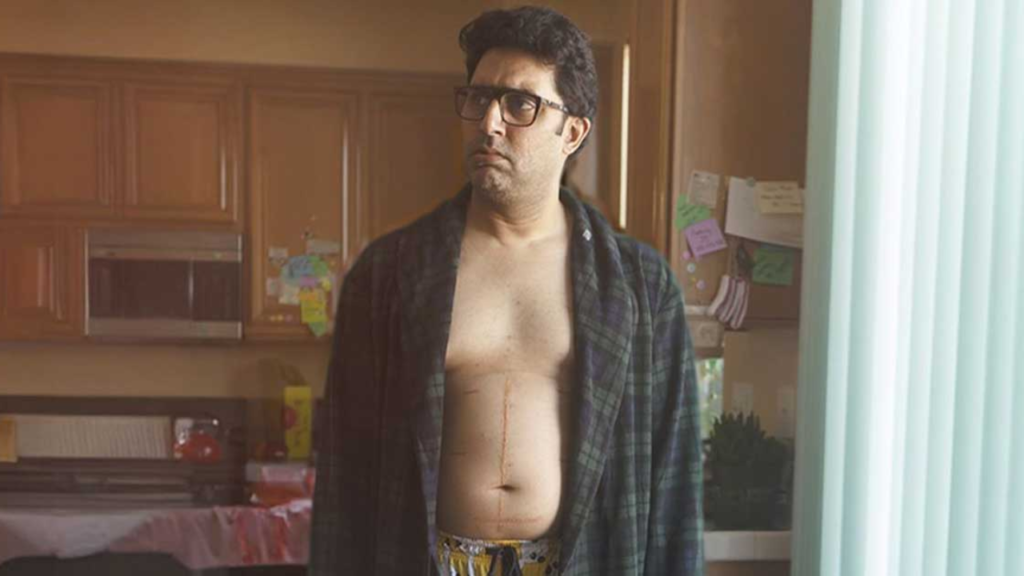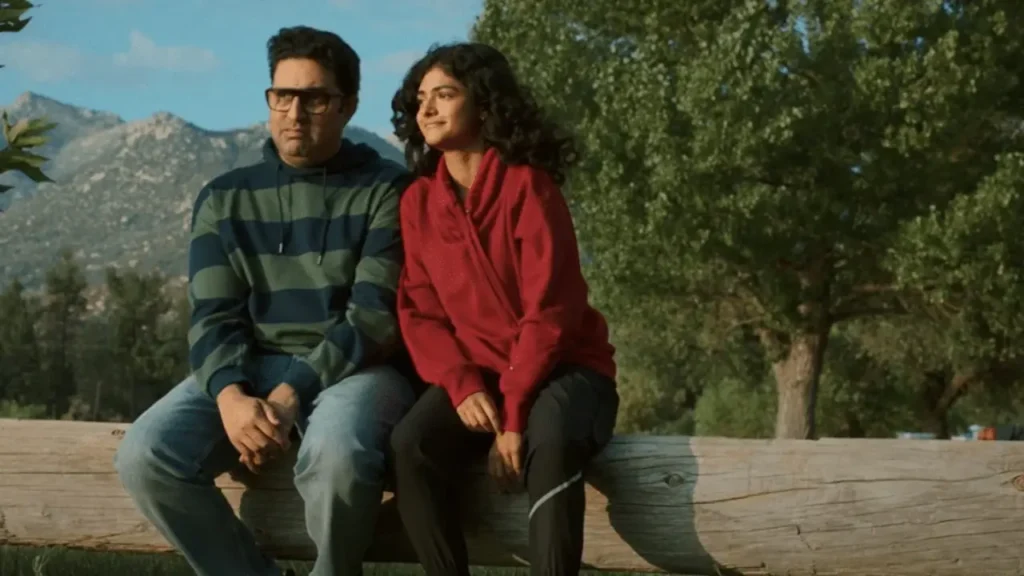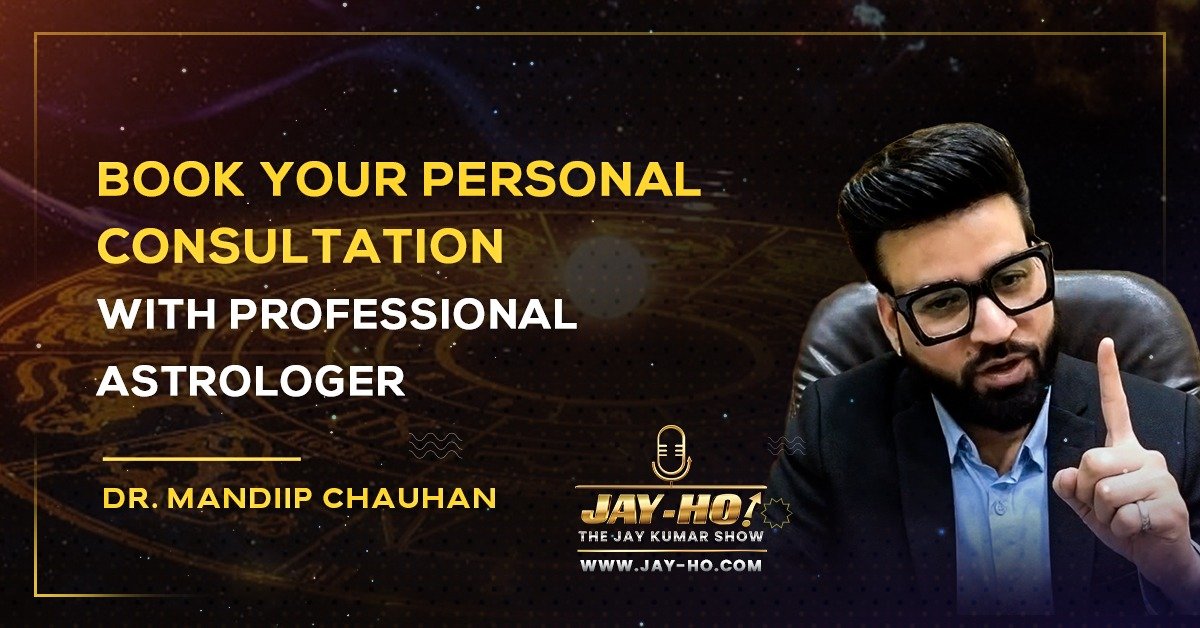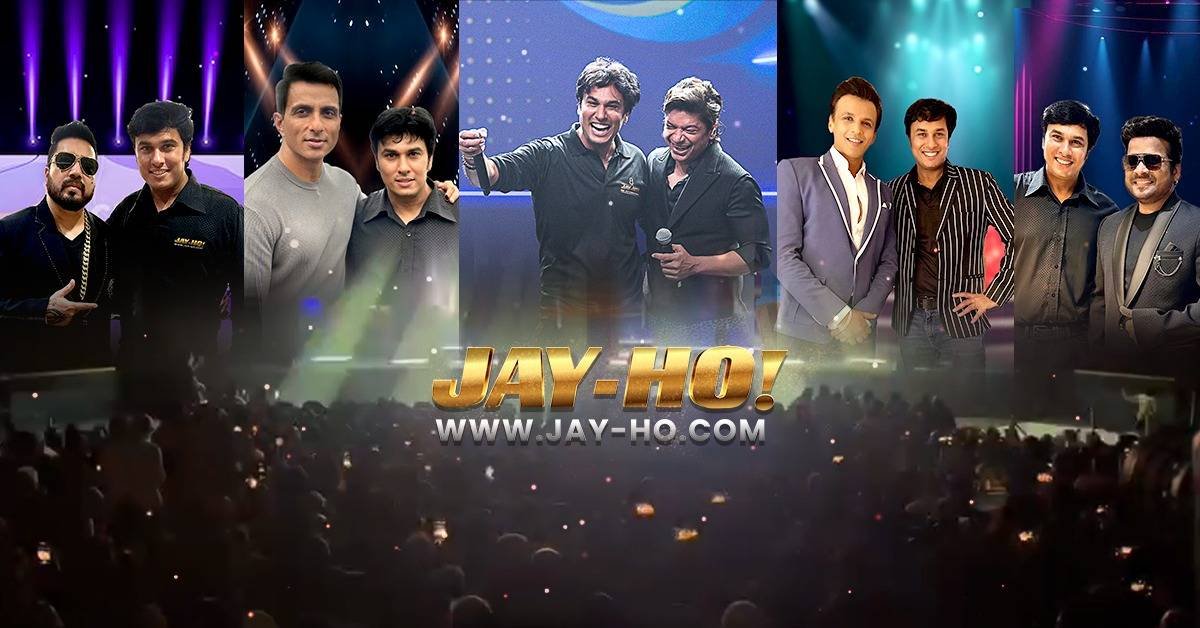“I Want To Talk” is a film that explores the emotional journey of a father, Arjun Sen, who is faced with a terminal illness and strives to reconnect with his daughter. Directed by Shoojit Sircar, this drama offers a refreshing take on mortality, focusing not on action or revenge, but on the complex emotions of a man who knows his time is running out.
I Want To Talk Review: A Unique Story About Fatherhood
Indian cinema has seen numerous films about fathers, but “I Want To Talk” stands apart. While many movies revolve around fathers seeking revenge or engaging in heroic acts, this film delves into the emotional struggles of a father with a terminal illness. Arjun, played by Abhishek Bachchan, is a marketing professional who receives devastating news: he has only a few months to live due to advanced cancer. As his divorce from his wife Indrani becomes final, Arjun decides to spend as much time as possible with his young daughter, Reya, who is played by Pearle Dey.
The film touches on an important theme—the relationship between Arjun and his daughter. Reya wishes to dance with her father at her wedding someday, a request that gives him a sense of purpose in his remaining days. This heartfelt moment fuels Arjun’s desire to fight his illness and repair his fractured relationship with his daughter.
A Slow-Burn Drama
Shoojit Sircar takes his time in telling this story. The first half of “I Want To Talk” slowly builds the emotional conflict, allowing the audience to witness Arjun’s struggle with his diagnosis. His fear, frustration, and acceptance of being a patient are portrayed in a subtle and realistic manner. There’s a sense of vulnerability in Arjun as he becomes a “project” for doctors, with one doctor explaining his surgery using diagrams, which Arjun finds almost dehumanizing. These moments may seem uncomfortable because we rarely discuss such serious topics openly, but the film gently nudges us to think about life, death, and how we deal with the unknown.
Sircar and screenwriter Ritesh Shah also add moments of lightness to the story, balancing the heaviness of Arjun’s situation with humor. This mixture of light and dark tones may take a while to process, but it invites us to see the brighter side of things, even in the darkest moments.

Strong Performances and Heartwarming Moments
As the story progresses into its second half, the film becomes more upbeat. One of the key elements that adds warmth to the film is the casting of Johnny Lever, who plays a character named Johnny. His mere presence brings a smile, and his witty lines provide comic relief in an otherwise emotional narrative. Abhishek Bachchan shines in his role as Arjun, capturing the character’s evolution from a man terrified of surgery to someone who becomes obsessed with surviving them. His relationship with his doctor, played by Jayant Kriplani, adds another layer to the story, highlighting the importance of human connection and support.
Bachchan’s portrayal is endearing, and his character’s one-liners bring a touch of humor to the film. His performance often recalls his father Amitabh Bachchan’s role in “Piku,” where an aging father is deeply involved in his daughter’s life. There’s a sense of tenderness and vulnerability in Arjun that feels very real and relatable.
Pacing and Ending
While the film’s first half is well-paced, the second half feels slightly stretched, which may tire some viewers. However, the ending offers hope and a sense of closure. The title, “I Want To Talk,” takes on a layer of irony, as Reya, in a voiceover, wishes she could have had one last meaningful conversation with her father. This leaves us wondering—whose perspective does the title represent? Is it Reya’s or Arjun’s? It’s a question that lingers long after the film ends.
Overall, “I Want To Talk” is a moving exploration of father-daughter relationships, mortality, and the way we face life’s toughest challenges. Bachchan’s heartfelt performance and the film’s emotional depth make it a memorable experience.


























